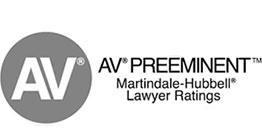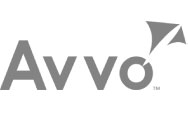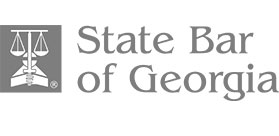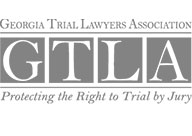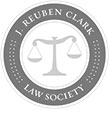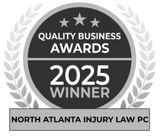Your Rights After an Injury on Someone Else’s Property in Milton
If an unsafe condition on a property in Georgia caused you to get hurt, you have specific legal rights. The most important one is the right to seek financial compensation for the harm you’ve suffered when a property owner fails to keep their premises reasonably safe.
But what does “reasonably safe” actually mean?
Georgia law, specifically O.C.G.A. § 51-3-1, places a duty of “ordinary care” on property owners. Simply put, anyone who invites you onto their property—whether it’s a grocery store, an office building, or a private home—has a legal responsibility to fix known dangers or warn you about them. When they fail to do that, and you get injured as a result, they can be held accountable.
Our Milton premises liability lawyer understands how to protect your rights in these situations. We know that figuring out legal codes and deadlines is the last thing you want to do while you’re trying to heal. If you have questions about what happened, we’re here to provide clear answers. Contact North Atlanta Injury Law for a no-cost consultation at (770) 988-4000.
Milton Premises Liability Guide
- Your Rights After an Injury on Someone Else’s Property in Milton
- Key Takeaways for Milton Premises Liability Claims
- How We Help You Recover
- What Do You Have to Prove for a Successful Claim?
- What Compensation Is Available for Your Injuries?
- Gathering Evidence to Build Your Case
- Common Premises Liability Scenarios in Milton and North Fulton
- How You Should Protect Your Claim While You Recover
- Frequently Asked Questions for a Milton Premises Liability Lawyer
- Let Us Help You Move Forward
Key Takeaways for Milton Premises Liability Claims
- Property owners must keep their premises reasonably safe. Owners must fix or warn about hazards they know of, or should know about. If they fail, they can be held liable for injuries.
- You must prove the owner was negligent. You need evidence that the owner breached their duty of care and that this directly caused your injury. Without strong documentation, insurers may argue the hazard was obvious or your fault.
- Your compensation depends on both damages and fault. Georgia’s modified comparative negligence rule reduces your payout if you’re partially at fault—and bars recovery entirely if you’re 50% or more at fault. Insurers use this aggressively, so legal guidance matters.
How We Help You Recover
At North Atlanta Injury Law, our work is centered on one thing: helping people who were injured because of someone else’s negligence. We handle premises liability cases with the focused attention they demand, because we understand what’s at stake.
We believe that you should always know what’s happening with your case. That’s why we explain every step of the process in plain language, not confusing legal jargon. You’ll have a direct line to our team, so your questions always get answered.
Our approach is straightforward:
- Free Case Review: We start with a free, no-obligation conversation to hear your story and explain your legal options.
- No Win, No Fee: We work on a contingency fee basis. This means you pay nothing unless we successfully recover compensation for you.
- A Deep Dive into the Facts: Our team meticulously gathers evidence, interviews witnesses, and builds a solid foundation for your claim.
- Handling the Insurance Companies: We manage all communication with the property owner’s insurer, working to secure a fair settlement that covers the full scope of your losses.
What Do You Have to Prove for a Successful Claim?
Georgia law requires you to demonstrate that the property owner was negligent. To do this, you must prove four specific elements.
The burden of proof rests entirely on you, the injured person. You have to establish that the property owner had a legal responsibility to you, that they failed to meet that responsibility, and that this failure directly caused your injuries. A slip or a fall doesn’t automatically mean you have a case; you must show the owner knew or should have known about a hazard and did nothing to fix it or warn you about it.
Our role is to gather the evidence needed to establish each of these four points:
- The Property Owner Owed You a Duty of Care: The level of responsibility a property owner has depends on why you were on their property. Visitors fall into three legal categories:
- Invitees: An invitee is on the property for the owner’s benefit. Think of a customer in a store, a client in an office, or a contractor hired for a job. Property owners owe invitees the highest duty of care. They must keep the property safe and actively inspect for hidden dangers.
- Licensees: A licensee is a social guest, like a friend visiting someone’s home. The owner has a duty to warn licensees of any known dangers but isn’t required to inspect the property for hazards they aren’t aware of.
- Trespassers: A trespasser enters a property without permission. Property owners generally do not owe a duty of care to trespassers, other than to avoid willfully or wantonly injuring them.
- The Owner Breached Their Duty: This means the owner failed to act as a reasonably prudent person would. For instance, they knew a freezer was leaking in a grocery aisle but didn’t clean it up, or they ignored a wobbly handrail on a staircase for months.
- The Breach Caused Your Injuries: You must draw a direct line from the owner’s failure to your injury. The puddle on the floor, not just a moment of inattention, must be the reason you fell and suffered injuries.
- You Suffered Damages: This includes all measurable losses, such as medical expenses and lost income, as well as non-financial impacts like pain and suffering.
What Does a “Reasonable” Effort to Keep Property Safe Look Like?
The law doesn’t expect property owners to be perfect, but it does demand that they be responsible. The idea of “ordinary care” is flexible and depends on the situation. What is considered reasonable for a busy shopping mall is different from what’s expected of a homeowner.
Think of it this way:
- A reasonable grocery store manager would have staff regularly check the aisles for spills and put up a “wet floor” sign immediately after mopping.
- An unreasonable manager might ignore a leaking refrigerator for days, allowing a slippery, dangerous puddle to form.
- A reasonable homeowner would salt their public-facing sidewalk after a snowstorm or fix a broken step they know about.
- An unreasonable homeowner might let that broken step sit for a year, knowing that delivery drivers and guests use it regularly.
Our investigation focuses on showing that the property owner’s actions—or lack of action—fell short of what a sensible person would do in the same circumstances.
What Compensation Is Available for Your Injuries?
A premises liability claim is designed to provide financial resources to cover the losses you suffered. In legal terms, these losses are called “damages,” and they are generally separated into two main types.
Economic Damages
These are the specific, calculable financial costs that have piled up since your injury. We meticulously document every expense to build a clear picture of your financial losses. These include:
- All Medical Expenses: This covers everything from the ambulance ride and emergency room visit to ongoing physical therapy, prescription drugs, and any future surgeries or treatments you may need.
- Lost Wages: The income you lost while you were unable to work.
- Loss of Future Earning Capacity: If your injuries permanently affect your ability to do your job or force you into a lower-paying field.
Non-Economic Damages
These damages compensate you for the personal, non-financial ways the injury has impacted your life. While they don’t come with a receipt, their effect is just as real. They include:
- Pain and Suffering: For the physical pain and emotional distress caused by the injury and the recovery process.
- Loss of Enjoyment of Life: If the injury stops you from engaging in hobbies, sports, or other activities that were important to you.
How Your Own Actions Can Affect Your Claim
Georgia follows a “modified comparative negligence” rule, which is detailed in O.C.G.A. § 51-12-33. This law means that if you are found to be partially at fault for your injury, your compensation award will be reduced by your percentage of fault.
However, if a court finds you 50% or more at fault, you are barred from recovering any compensation at all. Insurance companies frequently use this rule to argue that the victim shares the blame, which is why our role is to keep them accountable and ensure no amount of fault is unjustly placed on you.
Gathering Evidence to Build Your Case
A successful claim depends on strong evidence. While you focus on healing, our team gets to work immediately, preserving information and uncovering the facts that show what really happened. Our investigation is a deep dive into the details, looking for key pieces of evidence like:
- Security Footage: Many businesses have cameras that may have captured the incident or the hazardous condition before you were injured. This footage can be some of the most compelling evidence available.
- Incident Reports: If you were hurt at a business, it’s likely that an employee created an internal report about what happened. We will work to obtain a copy of this document.
- Witness Statements: Other customers, employees, or passersby may have seen the accident or noticed the dangerous condition earlier. Their accounts can help confirm your version of events.
- Maintenance and Cleaning Logs: These records can show when an area was last inspected or cleaned, helping to establish whether the property owner was following their own safety procedures.
- Photographs of the Scene: We often send investigators to photograph the location of the incident, documenting the hazard before it can be repaired or changed.
Common Premises Liability Scenarios in Milton and North Fulton
An injury can happen on any property, but certain incidents are more common in suburban areas like Milton. The blend of residential communities, shopping plazas, and public parks creates a variety of settings where property owners must remain diligent.
We frequently handle cases that arise from:
- Retail and Grocery Stores: Slips on wet floors from spills or tracked-in rainwater, trips over boxes left in aisles, or injuries from items falling off high shelves are frequent occurrences in commercial stores.
- Parking Lots and Garages: Poor lighting, uneven pavement, potholes, or a lack of security can lead to falls or even assaults.
- Private Homes: A homeowner could be held responsible for injuries from a dog bite, a swimming pool accident, or a fall caused by a broken stair or a loose railing.
- Apartment Complexes: Landlords and property management companies have a duty to keep common areas—like stairwells, hallways, and sidewalks—safe and free of hazards.
- Construction Sites: These sites are dangerous for more than just workers. If a site is not properly secured, visitors or even people walking by could be injured.
Local Considerations in Milton
Milton is celebrated for its beautiful parks, equestrian farms, and expanding commercial hubs like the Crabapple district. While the city has a reputation for being safe, its rural character and large properties mean that the upkeep of long driveways, private walkways, and outdoor recreational spaces is a significant responsibility for property owners.
The city’s own commitment to safety is clear in its community planning. That same expectation of safety extends to every private and commercial property owner in the area.
How You Should Protect Your Claim While You Recover
While our team manages the legal work, there are several things you should do from home to protect your claim. Your main job is to focus on your recovery; these actions support that goal while preserving important information.
- Follow Your Doctor’s Treatment Plan: Attend every medical appointment, take all prescribed medications, and complete any physical therapy or specialist referrals. This not only helps you get better but also creates an official medical record of your injuries and the care they required.
- Keep a Recovery Journal: Each day, spend a few minutes writing down your pain levels, any physical tasks you couldn’t do, and how the injuries are affecting your daily life. Did pain keep you up at night? Were you unable to drive or play with your kids?
- Organize All Paperwork: Create a folder and keep every bill, receipt, and document connected to the incident. This includes medical bills, pharmacy receipts, and pay stubs that show your lost income.
- Stay Off Social Media: It is best to stop posting about the accident, your injuries, or your day-to-day activities on social media. Insurance companies will review your public profiles, searching for any photos or comments they can use to argue that your injuries are not as serious as you claim.
- Decline to Give a Recorded Statement: The property owner’s insurance adjuster will almost certainly call and ask to record a statement from you. You should politely decline until you have spoken with an attorney. These adjusters are trained to ask questions in a way that might lead you to say something that could weaken your claim later on.
Frequently Asked Questions for a Milton Premises Liability Lawyer
How long do I have to file a premises liability claim in Georgia?
In Georgia, the statute of limitations for most personal injury claims, including premises liability, is two years from the date of the injury. This deadline is set by O.C.G.A. § 9-3-33. If you fail to file a lawsuit within that two-year window, you will almost certainly lose your right to pursue compensation.
What if the hazard was obvious? Can I still have a case?
This touches on a legal idea called the “open and obvious” doctrine. Property owners sometimes argue they aren’t liable because the danger was so apparent that you should have seen and avoided it.
However, this defense isn’t absolute. For example, if a store places a large display in the middle of an aisle, you may be distracted and not see a spill on the floor next to it. The circumstances of each case matter.
What if I was injured at a friend’s house? Will I have to sue them?
This is a common worry. In the vast majority of cases, the claim is filed not against your friend personally but against their homeowner’s insurance policy. This is precisely why people have this type of insurance—to cover these exact situations, allowing you to be compensated for your medical bills without causing financial problems for your friend.
Can I file a claim if I was injured on public property in Milton, like a park or sidewalk?
Yes, you can file a claim against a government entity, but the rules are much stricter. Before you can file a lawsuit, you must first provide the city or county with a formal written notice of your claim, known as an “ante litem” notice. The deadline for this notice is often very short—just six months for a city in Georgia. It is important to act very quickly if your injury happened on government property.
I don’t think my injury is that serious. Should I still contact a lawyer?
Having a free consultation is always a good idea. Some injuries, like soft tissue damage or concussions, might not feel severe at first but can develop into chronic pain or long-term complications. An early, low settlement offer from an insurer might not cover the cost of future medical needs. Speaking with an attorney helps you understand the potential full value of your claim before you make any decisions.
Let Us Help You Move Forward
Our team at North Atlanta Injury Law is prepared to handle the legal details of your case so you can focus your energy on what is most important: your recovery. We will work to ensure that the property owner and their insurance company meet their responsibilities.
If you were injured in Milton, let our experienced Milton personal injury lawyer provide the guidance and support you need. Call us today for a free, confidential case evaluation at (770)988-4000.
North Atlanta Injury Law PC – Milton Office
Address: 12610 Crabapple Road Suite 201 Milton, GA 30004
Contact No: (770)988-4000


